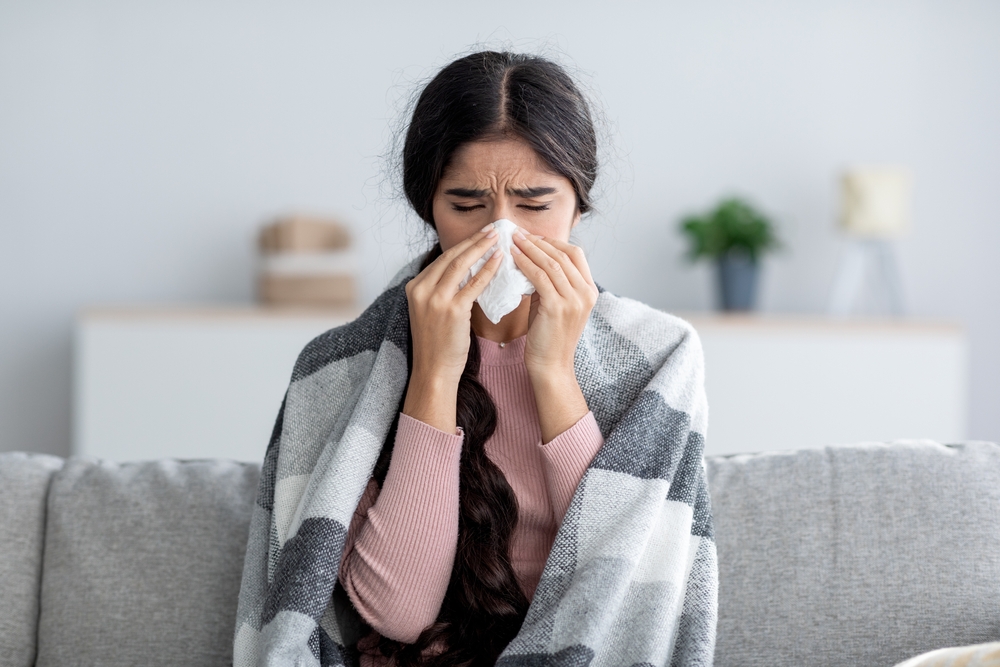Cayenne pepper has many health benefits. It is a member of the chili pepper family, and it is a spice that can be used for both cooking and as an ingredient in your favorite dishes. Cayenne pepper (Capsicum annuum) is commonly used as a seasoning or in foods that are served with a kick and is a staple in Mexican, Cajun, Creole, Korean, Sichuan, and other Asian cuisines. It has also been used for medicinal purposes for centuries in traditional Chinese and Ayurvedic medicine. Beyond just adding flavor to your food, this spice could also boost your health.
What Is Cayenne Pepper?

Cayenne pepper is a spicy red pepper that contains a compound called capsaicin. This is what actually gives its spicy flavor to foods like hot sauce or cayenne pepper. As mentioned, cayenne peppers are not just good for flavoring food. They are also big supporters of health in a number of ways. Capsaicin has been shown to have many health benefits, including:
Read More: Epsom Salt Uses, Health Benefits, And More
1. Weight management

Cayenne pepper has been shown to help boost metabolism and regulate appetite hormones. Studies have shown that consuming cayenne increases core body temperature slightly. Not only did this mean the body burned more calories, but also study participants had a lowered desire to eat fatty, salty, or sweet foods. Another study showed that participants taking a capsaicin supplement over 12 weeks showed an almost 6% drop in body fat when compared to a placebo group. Though these results are interesting, researchers don’t quite yet understand the mechanism. More research needs to be done to be able to say definitively whether or not cayenne helps induce weight loss. (1)
2. Skin problems

Cayenne pepper can help treat acne by increasing blood flow to the skin cells and reducing inflammation caused by bacteria. This can help prevent scarring after acne breakouts. In addition, cayenne’s antibacterial properties have been shown to protect against the bacteria that cause skin and soft tissue infections. This includes impetigo and cellulitis. It also may improve psoriasis and other itchy skin conditions. However, the research on cayenne and skin problems is limited. More studies need to be done before healthcare professionals can recommend it as a treatment for these conditions.
3. Pain relief

Cayenne pepper has been shown to be beneficial for pain relief. Capsaicin may help to reduce the amount of the chemical that carries pain messages to the brain, reducing the amount of pain one perceives. Another study found that creams containing capsaicin might help to reduce the pain associated with osteoarthritis. The only issue with this is that some people found that the cream irritated their skin. Finally, studies have looked at taking oral capsaicin for pain relief in athletes. However, the researchers still don’t fully understand how this works, and they found that this can also cause some gastrointestinal distress. More research is required.
Read More: 7 Health Benefits of Planks
4. May Help Prevent Heart Attack and Stroke

Many studies have looked at the effects of capsaicin on blood flow and heart function. The results show that capsaicin can help reduce the risk of a heart attack or stroke by improving blood flow to the heart. It does this by affecting how platelets clot together and by relaxing and improving the flexibility of veins and arteries. (2)
Some studies have also looked at how capsaicin affects cholesterol levels. There is evidence that it can help lower LDL or bad cholesterol, but more research is necessary to verify this effect. It is important to note that simply adding cayenne pepper to your food is not a replacement for a healthy lifestyle. Cayenne can improve heart health, but only when paired with a healthy diet and exercise.
5. Easing Cold Symptoms

Cayenne pepper can help to ease the symptoms of a cold. It’s an anti-inflammatory, so it can reduce the swelling and irritation in your nasal passages that often come with being sick. Cayenne also helps clear mucus from your lungs by thinning it out so it flows more easily. This makes breathing easier and less painful, which will help you feel better faster.
6. Boosts Antioxidant Activity

As already stated, cayenne pepper is rich in capsaicin, which has antioxidant properties. This means it can help fight free radicals in your body that cause damage and aging. Cayenne pepper also contains vitamin C, beta-carotene, and manganese, all of which act as antioxidants. Vitamin C is a powerful antioxidant that helps to fight free radicals, while beta-carotene protects against sun damage. Manganese is an essential mineral that helps your body process carbohydrates and protein, making it an important nutrient for everyone, especially those with diabetes.
The Bottom Line
Cayenne pepper is a great addition to your diet for many reasons. It has a number of potential health benefits, not to mention it will help make your food taste great. Be careful, though – it’s spicy! If you don’t tolerate spice well, start out only adding a very small amount to your food and work your way up from there as you build a tolerance to the heat.
You can take capsaicin in supplement form. However, you should check with your healthcare provider first. This is especially important if you are already taking other medications, as these can have unwanted interactions. If you suffer from gastrointestinal disease or irritable bowel syndrome, then Cayenne is likely not the right choice for you.
Finally, as already stated, cayenne pepper is not a substitute for a healthy lifestyle. Eating a healthy, balanced diet, getting plenty of exercise, drinking water, and establishing a regular sleep routine are critical. Cayenne pepper is just another way you can support your already healthy life.
Read More: Group in Boulder Drinks Their Own Pee for ‘Health Benefits’
Sources
- “The health benefits of cayenne pepper.” Medical News Today. Megan Ware, RDN, L.D. January 3, 2020
- “Chili Peppers May Help Prevent Deadly Heart Attack and Stroke, Study Suggests.” Everyday Health. Don Rauf. December 20, 2019.

